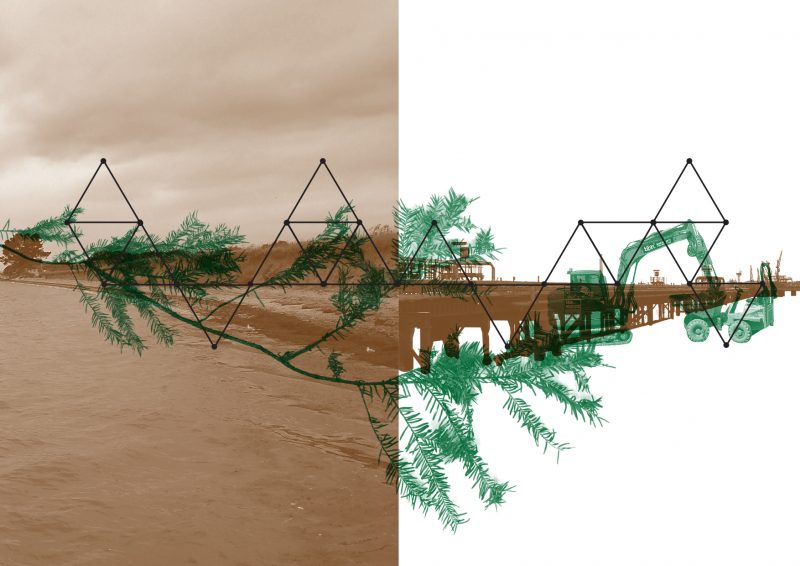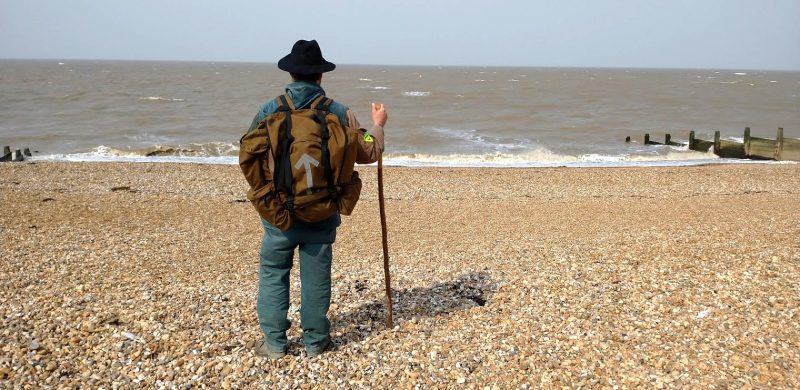Central to this work is a pilgrimage, a walk which has taken many twists and turns before even setting foot on a path. Initially planned for spring 2020, the idea took root as an attempt to gauge the state of a nation in the wake of the the Brexit vote by walking the land, surveying social landcapes and seeking positive visions of the future. Then there was a pandemic. During that period, Iike many others, I found myself looking inwards and, in the relative stasis of those months, began to question parts of myself that I never questioned before, in particular the drive to progress and keep moving on to the next thing, to keep producing. I began to wonder if that wasn’t just part of my character, so to speak, but actually a hardwired obedience to the capitalist system that we exist within.
As a result, when the time came to revisit this planned work, I found that this proposed search for positive futures no longer spoke to me as an end in itself, for reasons I’ve explained in the first introductory post, and so I had to ask myself in what spirit should I step out on this new pilgrimage, following the same route though it is. Through a year of reading, listening, and conversations, what has emerged as the rationale for walking this medieval pilgrim route is the intention to decolonize self and psyche of a millennium or so of human activities that have assumed dominion over landscape, animal, vegetable and mineral, and led us to where we find ourselves. This wonderful passage from Pilgrimage, Tim Robinson’s first Stones Of Aran volume, beautifully illustrates the laughable impossiblity of such an intention:
“Our world has nurtured in us such a multiplicity of modes of awareness that it must be impossible to bring them to a common focus even for the notional duration of a step. On our craggy, boggy, overgrown and overbuilt terrain, every step carries us across geologies, biologies, myths, histories, politics, etcetera and trips us with the trailing ‘Rosa Spinosissima’ of personal associations. To forget these dimensions of a step is to forgo our honour as human beings, but an awareness of them equal to the involuted complexities under foot at any given moment would be a crushing backload to have to carry. Can such contradictions be forged into a state of consciousness even fleetingly worthy of its ground? At least one can speculate that the condensation and structure necessary to pass from such various types of knowledge to such an instant of insight would have the characteristics of a work of art, partaking of the individuality of the mind that bears it, yet with a density of content and richness of connectivity surpassing any state of that mind. So the step lies beyond a certain work of art, it would be like a reading of that work. And the writing of such a work? Impossible, for many reasons, of which the brevity of life is one. However, it is clear that Aran is the exemplary terrain upon which to dream of that work, the guidebook to the adequate step.”






1 Comment
Add Yours →[…] Source: Pilgrimage #1: the adequate step | The Book of Visions […]